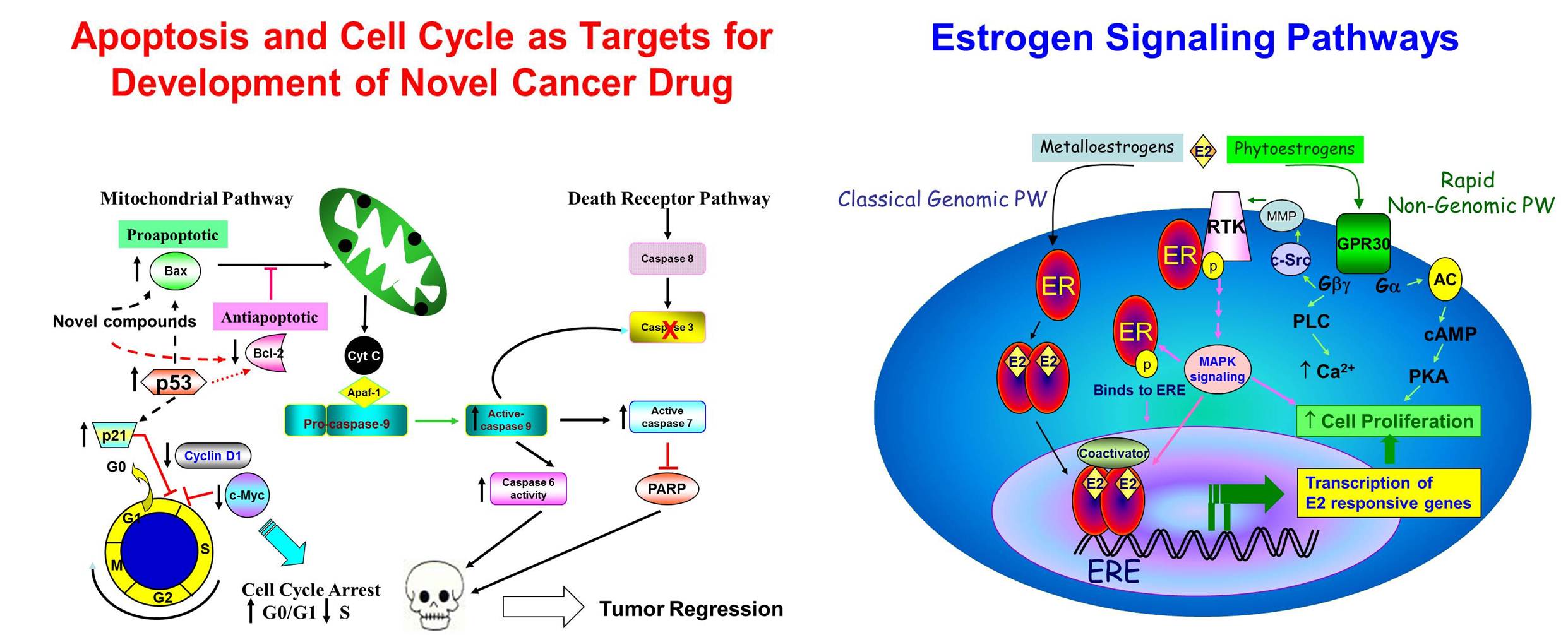Cancer biology, therapy and prevention

Cancer is the number one cause of death among the Thai population. Finding the way to cure cancer is a challenging task for scientist. Several research projects have been carried out in the attempt to gain better knowledge regarding biology of cancer in order to understand the nature of cancer cells. The obtained comprehensive information on cancer biology will pave the way to research on cancer therapy and cancer prevention as it will provide significant knowledge such as effective targets which will facilitate development of novel anti-cancer drugs and cancer preventive agents. Thailand is known to be a prevalent area of liver and bile duct cancer and the incidence of breast and colorectal cancer is also on the rise. Therefore, cancer research conducted by Laboratory of Pharmacology is focused on colorectal cancer, breast cancer, hepatocellular carcinoma (HCC), and cholangiocarcinoma (CCA). An array of cancer research projects covers from in vitro study using human cancer cell culture to in vivo animal model. Additionally, the collaboration with Chulabhorn Hospital, our study is currently expanding to study in human tumor tissues.
In order to understand the biology of cancer cells, research projects emphasize the molecules and signal transduction pathway that control homeostasis balance of cell growth such as cell cycle regulation and apoptosis cell death. Estrogen signaling is well established as playing a critical role in development and progression of breast cancer. However, accumulated studies have demonstrated the complexity of this steroid hormone signaling and its part in several types of cancer such as liver and colorectal cancer. A study by our group has demonstrated alteration in expression of estrogen receptor subtype and variants in colorectal cancer tissues. This study is ongoing and aims to better understand the role and correlation of estrogen receptor and progression of colorectal cancers. Besides its original hormone property, estrogen and its signaling has been demonstrated to have a complex role in inflammatory responses. Therefore, part of this project is aimed at studying the role of estrogen signaling on inflammation in HCC and CCA.
In addition, the impact of environmental pollutants that affect estrogen signaling is also an area of interest. Study on the effect of heavy metals such as cadmium and arsenic which possess estrogenic and/or antiestrogenic properties on biology of cancer is in progress. The study emphasizes both the genomic and non-genomic estrogen signaling pathways. The ability of these metals to alter estrogen signalings may be significant for their tumorigenicity and toxicity effects. Furthermore, the xenoestrogenic activity of herbicides and industrial compounds have been investigated.
As Thailand is well endowed with medicinal plants, thus cancer research is expanding to the field of drug development for prevention and intervention of cancer. The molecular mechanism of the potential extracts and pure compounds from Thai medicinal plants is investigated focusing on antioxidation, antiestrogenic/ estrogenic properties, apoptosis and cell cycle machinery. Our group demonstrated that lignans from sesame seeds exhibit phytoestrogen property with weak estrogenic/antiestrogenic effect depending on intrinsic estrogen levels. Currently, the anti-cancer effect of sesame lignans on colorectal cancer and breast cancer is under investigation.

